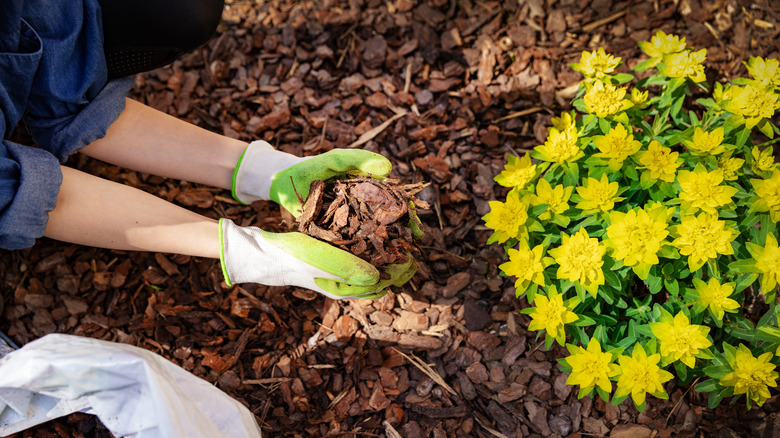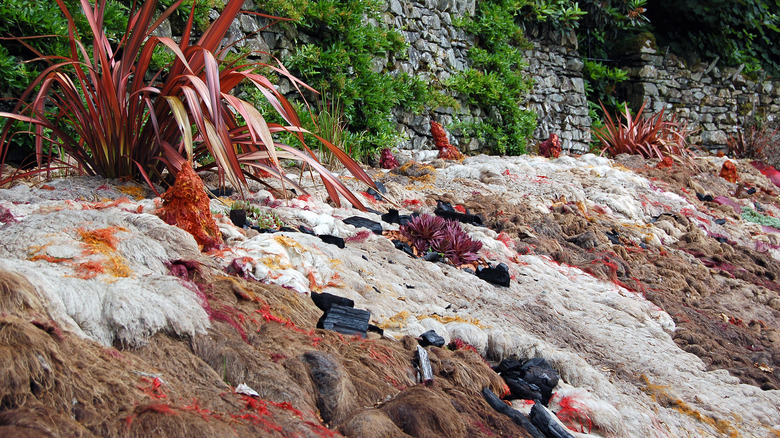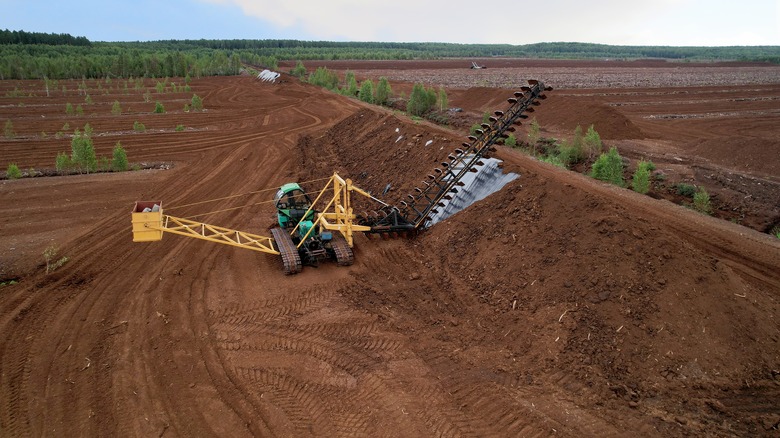The Natural Fiber You'll Want To Use In Your Mulch
Wool isn't just for knitting blankets and sweaters – you can also use it in the garden. It may seem a little strange at first, but if you think about it, pure wool is a natural product, just like manure, which is something often found in compost. Using wool as mulch is an excellent alternative to synthetic fertilizers and will help you keep your garden natural and environmentally friendly.
Wool offers so many benefits to the garden that it'll make you wonder why it hasn't been widely implemented sooner. Moist soil, fewer pests and diseases, and increased nitrogen are just a few of the benefits your garden will gain if you start using wool. You'll want to use raw wool that hasn't been treated or mixed with synthetic fibers, meaning you can't just recycle that wool yarn you've been holding onto forever unless you know exactly where it came from and how it was processed.
Wool benefits the garden
Plants will receive so many benefits when you use wool in your gardening mulch. The material acts as a barrier for the soil and the plant, and keeps the soil insulated to provide consistent temperatures, which will help the plant when temperatures fluctuate in the spring and fall. It also helps the soil retain moisture by preventing evaporation throughout the day, allowing you to water much less often than you would have to without the mulch.
Since wool is natural, it will eventually decompose and become organic matter in the soil. As it breaks down, it releases nitrogen into the soil, which helps with foliage growth. A Sustainable Agriculture Research and Education (SARE) project tested different crops with wool, hay, and no mulch. Among a few different crops, the ones with wool mulch performed the best, resulting in heavier produce and higher nitrogen levels in the plants.
Wool will also help stop the spread of pests, diseases, and weeds. Bugs and slugs can't easily access plants from the soil, and diseases can't spread as easily since wool soaks up water. They'll also prevent weeds from popping up by preventing them from seeing the sunlight. In the SARE project, they also found their wool-covered sweet potato bed completely undisturbed by deer, while the hay-mulched potatoes did have some deer damage.
Wool benefits the environment
Wool mulch offers more than just personal gain; it does great things for the environment. As the wool decomposes and becomes part of the soil, it will help soften clay soil, making it easier for plants and helpful small critters alike to make their way through the soil. You'll have bigger and healthier plants when the soil is teeming with life.
It also reduces the need for peat, which is a popular additive to soil mixes. Peat is good for retaining moisture which is why it's used so heavily, but it's not a renewable resource. Peat is formed from old organic matter — old as in over 1,000 years — and can't be replaced as fast as it's excavated. Harvesting peat also causes the release of many harmful greenhouse gases which poses an issue for the environment, as they contribute to global warming and climate change.


